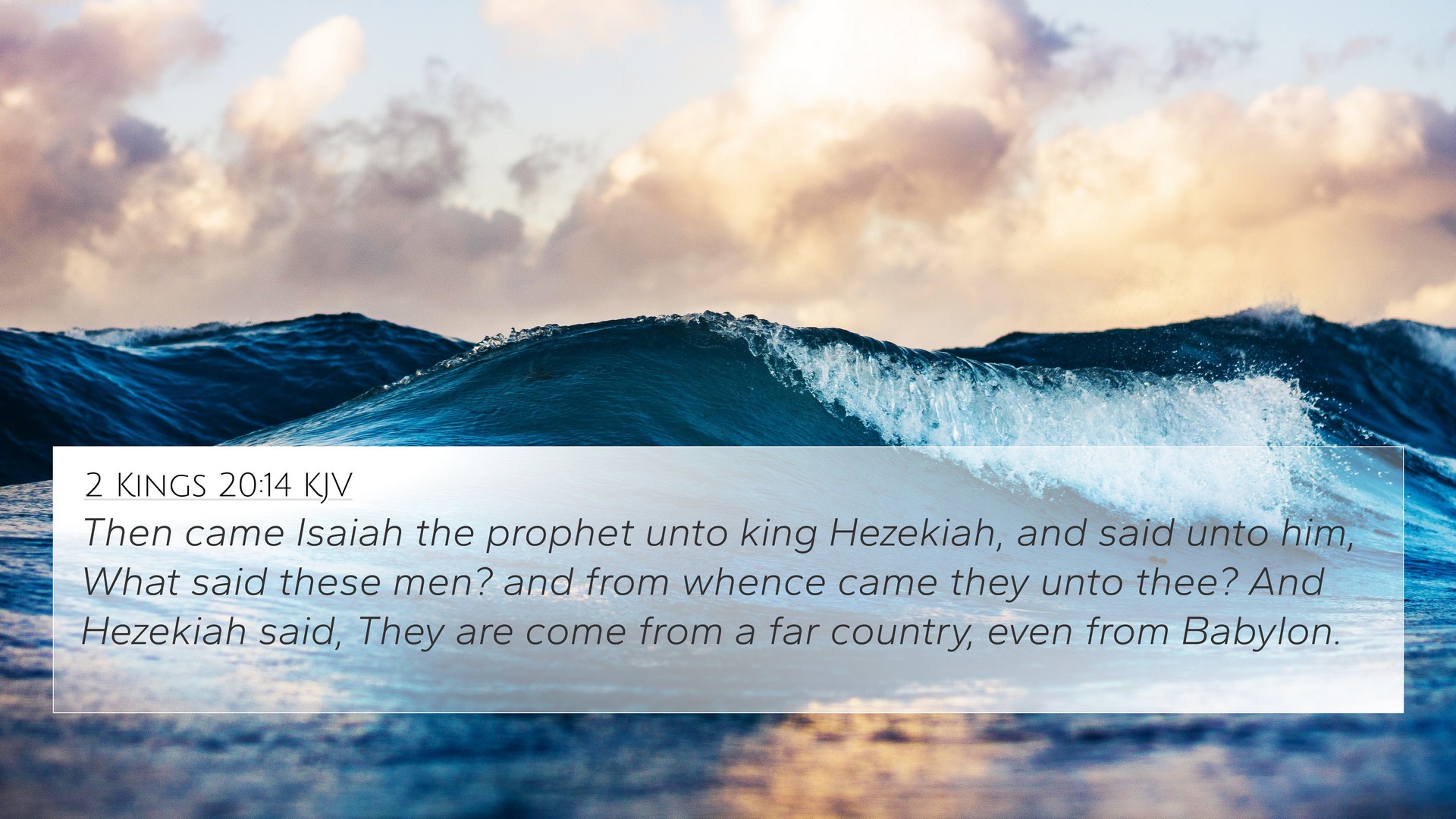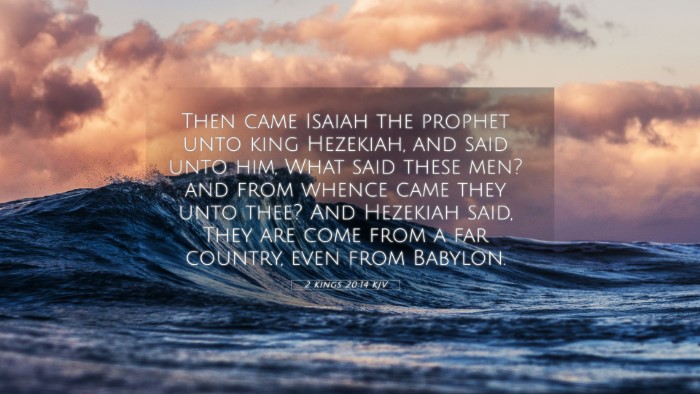Old Testament
Genesis Exodus Leviticus Numbers Deuteronomy Joshua Judges Ruth 1 Samuel 2 Samuel 1 Kings 2 Kings 1 Chronicles 2 Chronicles Ezra Nehemiah Esther Job Psalms Proverbs Ecclesiastes Song of Solomon Isaiah Jeremiah Lamentations Ezekiel Daniel Hosea Joel Amos Obadiah Jonah Micah Nahum Habakkuk Zephaniah Haggai Zechariah Malachi2 Kings 20:14 Similar Verses
2 Kings 20:14 Cross References
Then came Isaiah the prophet unto king Hezekiah, and said unto him, What said these men? and from whence came they unto thee? And Hezekiah said, They are come from a far country, even from Babylon.
Uncover the Rich Themes and Topics of This Bible Verse
Listed below are the Bible themes associated with 2 Kings 20:14. We invite you to explore each theme to gain deeper insights into the Scriptures.
2 Kings 20:14 Cross Reference Verses
This section features a detailed cross-reference designed to enrich your understanding of the Scriptures. Below, you will find carefully selected verses that echo the themes and teachings related to 2 Kings 20:14 KJV. Click on any image to explore detailed analyses of related Bible verses and uncover deeper theological insights.
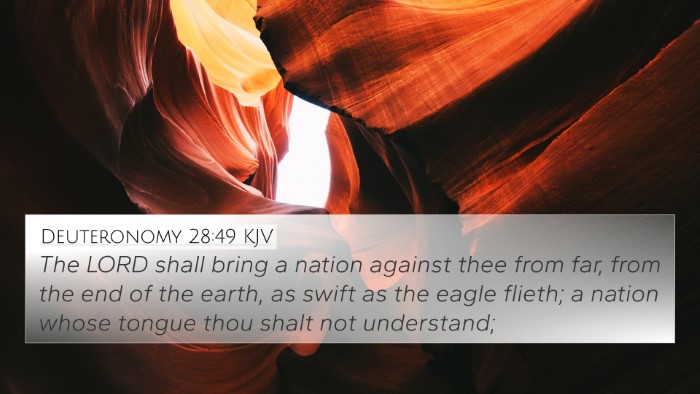
Deuteronomy 28:49 (KJV) »
The LORD shall bring a nation against thee from far, from the end of the earth, as swift as the eagle flieth; a nation whose tongue thou shalt not understand;
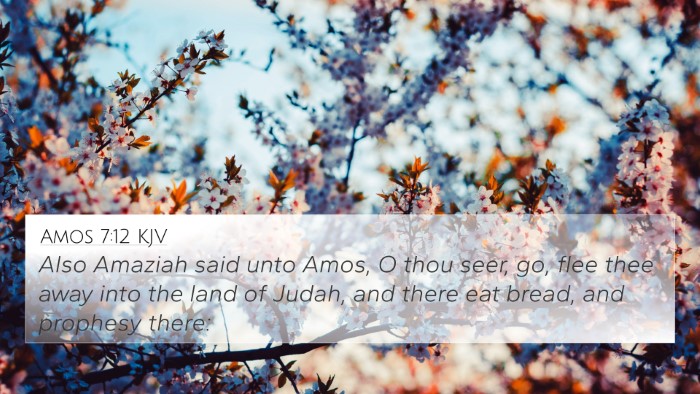
Amos 7:12 (KJV) »
Also Amaziah said unto Amos, O thou seer, go, flee thee away into the land of Judah, and there eat bread, and prophesy there:
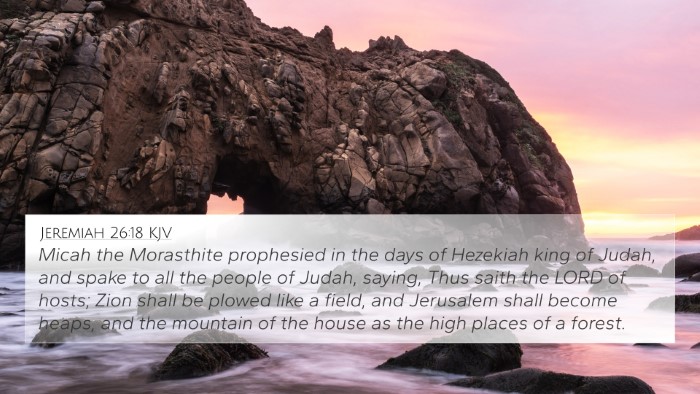
Jeremiah 26:18 (KJV) »
Micah the Morasthite prophesied in the days of Hezekiah king of Judah, and spake to all the people of Judah, saying, Thus saith the LORD of hosts; Zion shall be plowed like a field, and Jerusalem shall become heaps, and the mountain of the house as the high places of a forest.
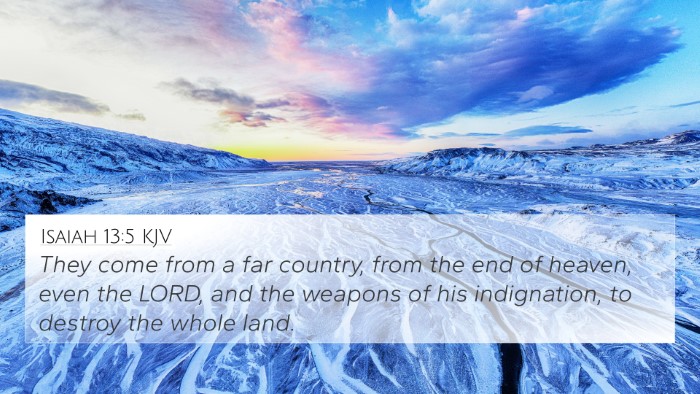
Isaiah 13:5 (KJV) »
They come from a far country, from the end of heaven, even the LORD, and the weapons of his indignation, to destroy the whole land.
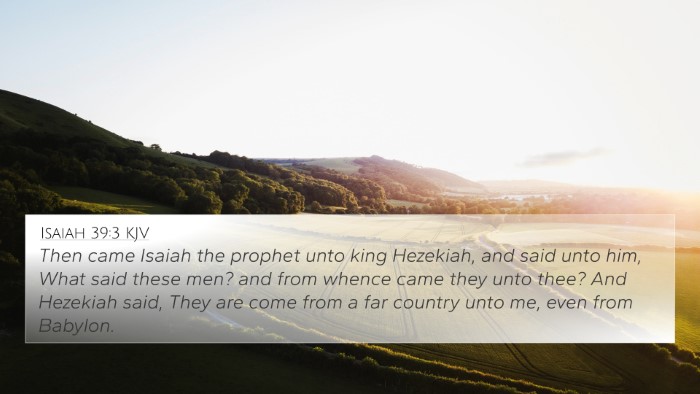
Isaiah 39:3 (KJV) »
Then came Isaiah the prophet unto king Hezekiah, and said unto him, What said these men? and from whence came they unto thee? And Hezekiah said, They are come from a far country unto me, even from Babylon.
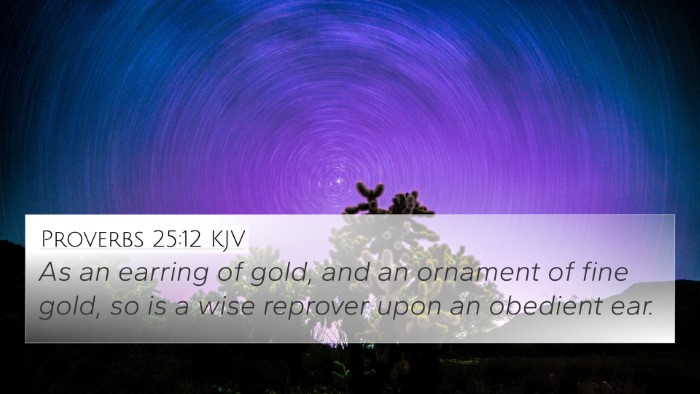
Proverbs 25:12 (KJV) »
As an earring of gold, and an ornament of fine gold, so is a wise reprover upon an obedient ear.

Psalms 141:5 (KJV) »
Let the righteous smite me; it shall be a kindness: and let him reprove me; it shall be an excellent oil, which shall not break my head: for yet my prayer also shall be in their calamities.
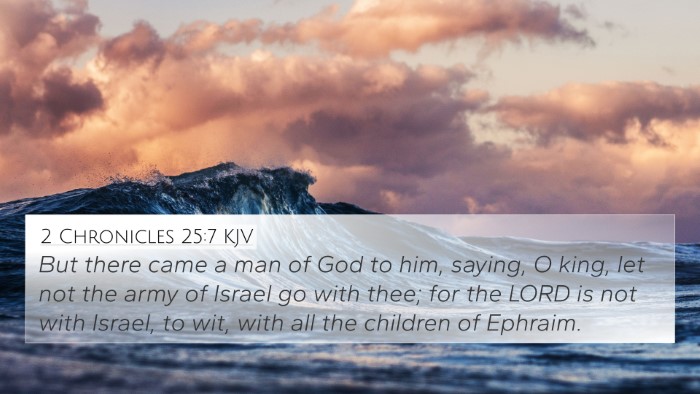
2 Chronicles 25:7 (KJV) »
But there came a man of God to him, saying, O king, let not the army of Israel go with thee; for the LORD is not with Israel, to wit, with all the children of Ephraim.
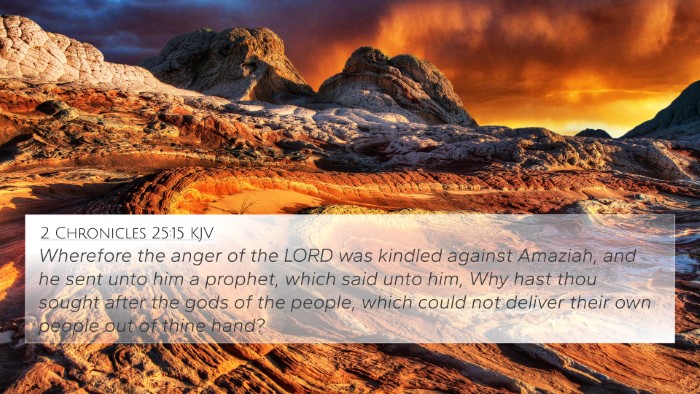
2 Chronicles 25:15 (KJV) »
Wherefore the anger of the LORD was kindled against Amaziah, and he sent unto him a prophet, which said unto him, Why hast thou sought after the gods of the people, which could not deliver their own people out of thine hand?
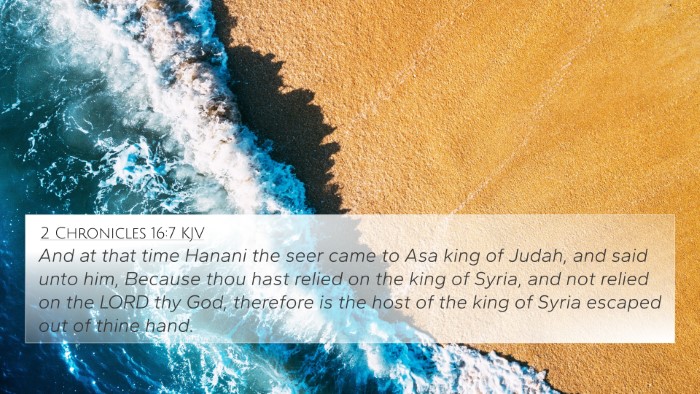
2 Chronicles 16:7 (KJV) »
And at that time Hanani the seer came to Asa king of Judah, and said unto him, Because thou hast relied on the king of Syria, and not relied on the LORD thy God, therefore is the host of the king of Syria escaped out of thine hand.

2 Kings 5:25 (KJV) »
But he went in, and stood before his master. And Elisha said unto him, Whence comest thou, Gehazi? And he said, Thy servant went no whither.
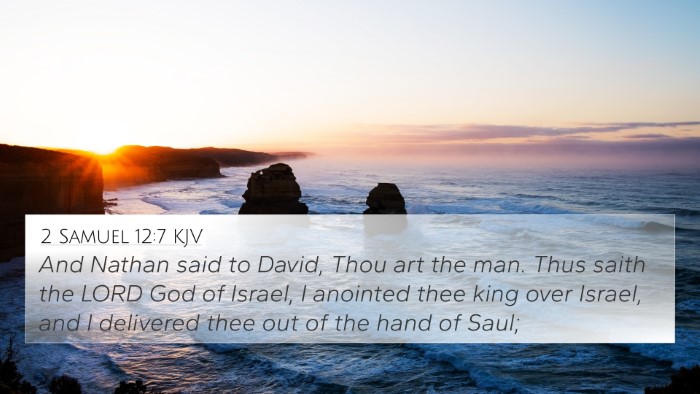
2 Samuel 12:7 (KJV) »
And Nathan said to David, Thou art the man. Thus saith the LORD God of Israel, I anointed thee king over Israel, and I delivered thee out of the hand of Saul;
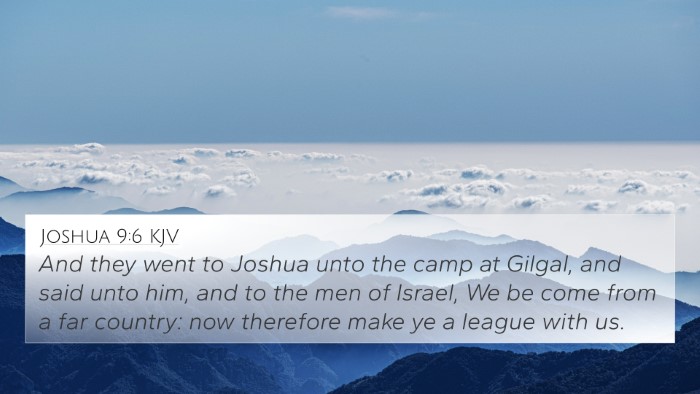
Joshua 9:6 (KJV) »
And they went to Joshua unto the camp at Gilgal, and said unto him, and to the men of Israel, We be come from a far country: now therefore make ye a league with us.
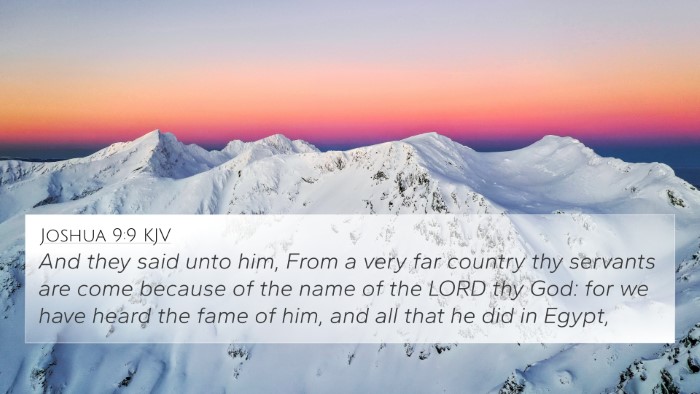
Joshua 9:9 (KJV) »
And they said unto him, From a very far country thy servants are come because of the name of the LORD thy God: for we have heard the fame of him, and all that he did in Egypt,
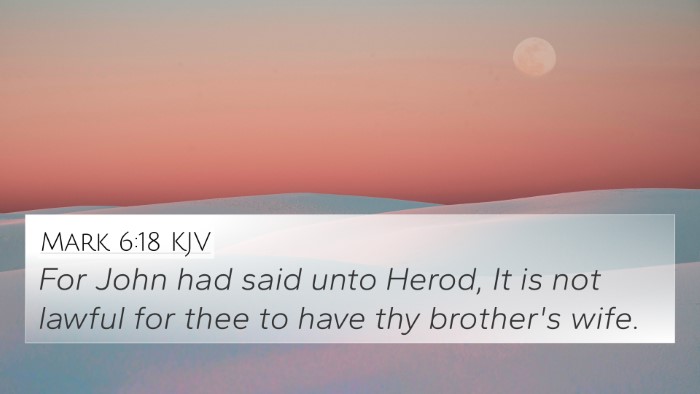
Mark 6:18 (KJV) »
For John had said unto Herod, It is not lawful for thee to have thy brother's wife.
2 Kings 20:14 Verse Analysis and Similar Verses
Understanding 2 Kings 20:14
2 Kings 20:14 states: "Then Isaiah the prophet went to King Hezekiah and said to him, 'What did these men say? And from where did they come to you?' So Hezekiah said, 'They came from a far country, from Babylon.'" This verse reveals a critical moment in the narrative of King Hezekiah, marking the interaction between the prophet Isaiah and the king regarding diplomatic overtures from Babylon.
Summary of the Verse's Meaning
This passage underscores the relationship between divine prophecy and human events. It highlights how God communicates through His prophets, in this case, Isaiah, who serves as a mouthpiece to convey both God’s messages and assessments of human actions. The visit from Babylon is pivotal as it foreshadows future events in Israel's history.
Commentary Insights
- Matthew Henry's Commentary:
Henry emphasizes the significance of the inquiry by Isaiah, noting that it serves to gauge Hezekiah's response to such foreign interests. The question reveals the nature of Hezekiah's heart — whether he is trusting in God or in alliances with other nations. The visit symbolizes a turning point and a test of faith.
- Albert Barnes' Notes:
Barnes points out that the Babylonian delegation signifies a political shift and indicates Hezekiah's growing fame and influence. However, he warns of the dangers inherent in such alliances, which can lead to dependence on human strength instead of reliance on God.
- Adam Clarke's Commentary:
Clarke provides a historical context to the visit, explaining Babylon's burgeoning significance during this period. He discusses how this symbolizes a testing of Hezekiah's faithfulness to God amidst external pressures and the potential for idolatry that comes with such diplomatic relations.
Inter-Biblical Connections
2 Kings 20:14 establishes significant biblical cross-references that enhance our understanding of its themes:
- Isaiah 39:1-3: This passage describes the consequences of Hezekiah showing his treasures to the Babylonian delegation, leading to prophesied judgment.
- 2 Chronicles 32:31: Here it is noted that the interview with the Babylonian emissaries was allowed by God to test Hezekiah’s heart.
- Isaiah 40:31: The themes of reliance on God in contrast to earthly powers resonate with the context of this historical interaction.
- Jeremiah 29:7: Encouragement to seek the peace of the city, reflecting on the relationship between Israel and surrounding nations.
- Matthew 6:19-21: The dangers of hoarding earthly treasures, akin to Hezekiah’s display of wealth, are echoed in Jesus' teachings.
- Luke 12:15: A warning against greed and reliance on material wealth that transcends Testaments.
- Philippians 3:20: The same trust in heavenly provisions contrasts earthly allegiances illustrated in this passage.
Thematic Connections
The verse demonstrates several themes prevalent throughout the Bible, such as:
- Divine Sovereignty: A recurring biblical theme wherein God orchestrates events for His purposes.
- Faith and Trust: Reflecting on human tendency to trust in external powers over God's guidance.
- Future Judgment: Foreshadowing the consequences that await Israel due to their alliances and reliance on foreign nations.
Cross-Referencing Biblical Texts
Through careful analysis, users seeking to delve deeper into understanding 2 Kings 20:14 can utilize resources and methods for cross-referencing. Such tools include:
- Bible concordance for identifying related verses.
- Bible reference resources to guide thematic studies.
- Cross-reference Bible study techniques to draw connections across the scriptures.
How to Use Cross-References Effectively
To explore thematic Bible verse connections in depth, consider:
- Identifying Connections: Look for verses that reinforce or contrast the themes found in 2 Kings 20:14.
- Comparative Studies: Engage in a comparative analysis of Old Testament and New Testament verses related to trust, judgment, and divine guidance.
- Document Insights: Make notes on how such connections shift your understanding of the text.
Conclusion
In conclusion, understanding 2 Kings 20:14 enriches biblical knowledge through inter-Biblical dialogue and cross-referencing techniques. By employing biblical study tools, one can uncover the layered meanings within the scripture, understanding the divine messages concerning faith, reliance, and the consequences of human alliances. The insights drawn from this passage not only prepare one for deeper theological reflection but also enhance personal spiritual understanding and growth.
